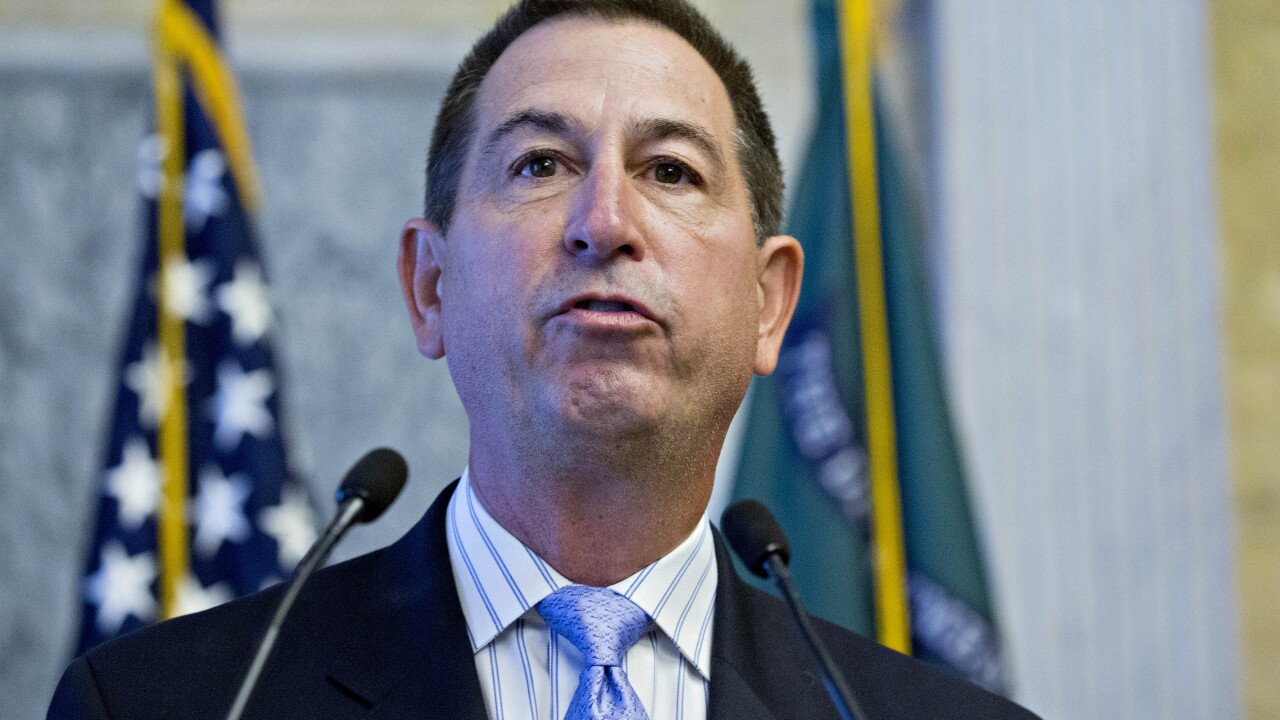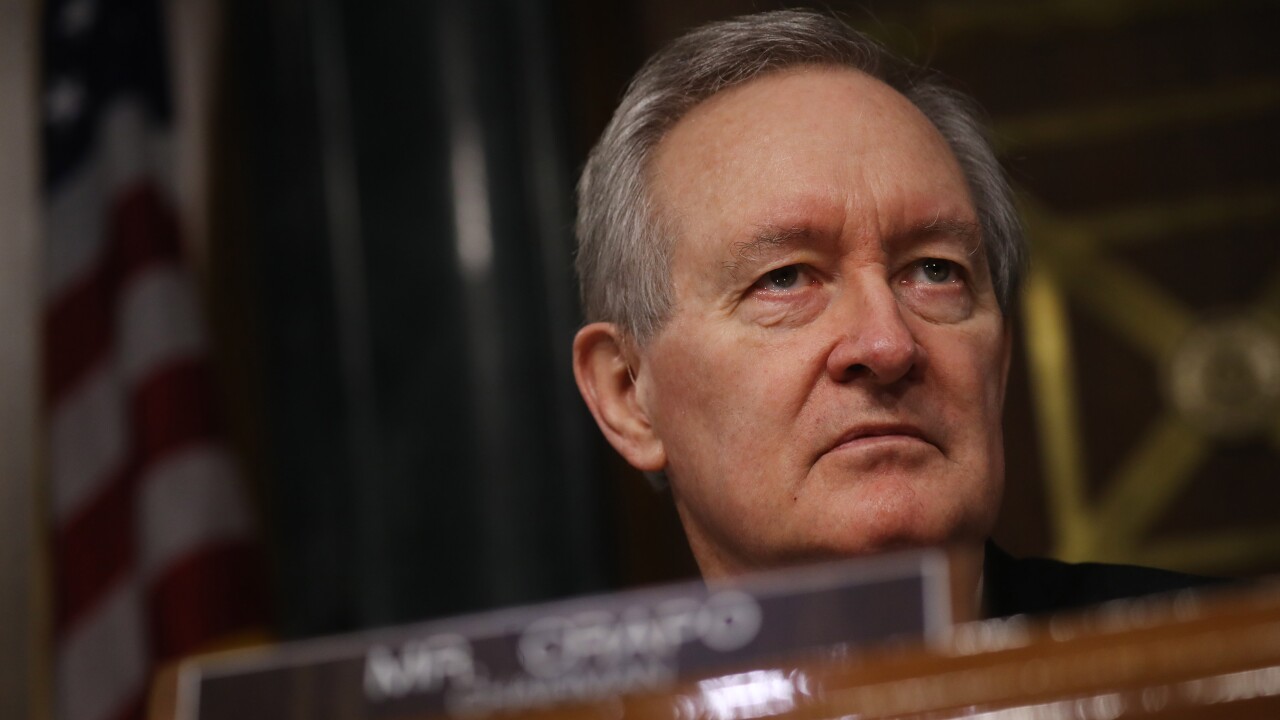-
The Mortgage Bankers Association, National Association of Realtors and 26 other groups warned the agency not to pursue steps reducing the scope of Fannie Mae and Freddie Mac that could upset the mortgage market.
March 1 -
Community banks and credit unions fear a Senate plan and other legislative ideas will nullify steps taken by Fannie Mae and Freddie Mac that have made it easier for smaller institutions to compete.
February 28 -
The new regulation, codifying requirements already in practice, is meant to help the mortgage giants prepare for the adoption of a uniform security in June.
February 28 -
Credit risk transfer does more than just reduce exposure to a downturn in the housing market. It also provides them with information about how others view mortgage credit risk.
February 27 -
If confirmed to lead the Federal Housing Finance Agency, Mark Calabria would have a central role in any efforts to reform the government-sponsored enterprises Fannie Mae and Freddie Mac
February 26 -
The Senate Banking Committee's vote on Mark Calabria's nomination to lead the agency comes amid speculation about congressional and administrative GSE reform plans.
February 21 -
The administration is sending conflicting signals on whether it has a plan to overhaul the housing finance system, further complicating an already complex debate.
February 19 American Banker
American Banker -
Former FHFA Director Mel Watt attempted to coerce an agency employee to engage in a romantic relationship with him, according to an inspector general report.
February 15 -
Refinance volume slipped following growth in mortgage rates, and loans refinanced through the Home Affordable Housing Program barely made a dent in overall volume, according to the Federal Housing Finance Agency.
February 15 -
The government-sponsored enterprises are going through a transition period. From proposals for rebuilding their capital cushions to tackling shortages in affordable housing, Fannie Mae and Freddie Mac face a number of key challenges with wide-ranging consequences this year.
February 14 -
The administration’s choice to regulate the government-sponsored enterprises appeared to distance himself from speculation that the White House may try to overhaul housing finance without legislation.
February 14 -
Rep. Blaine Luetkemeyer, R-Mo., told the mortgage giants' chief federal regulator that the Financial Accounting Standards Board’s new model for estimating loan losses could pose risk across the mortgage market.
February 14 -
Industry observers will be closely monitoring Mark Calabria's testimony before the Senate Banking Committee on Thursday for hints about how the Trump administration plans to proceed on mortgage finance reform.
February 13 -
The Senate Banking Committee will examine the nomination of Mark Calabria to oversee the regulator of Fannie Mae and Freddie Mac, as well as nominees for the NCUA board and Treasury.
February 7 -
Recent developments give the impression that the administration and lawmakers are in direct competition, but the ultimate framework may rely on coordination from both branches of government.
February 5 -
Absent some policy change, nearly a third of the loans backed by Fannie Mae and Freddie Mac could be in violation of the Consumer Financial Protection Bureau's Qualified Mortgage rule in two years.
February 4 -
Despite the release of Senate Banking Committee Chairman Mike Crapo's outline of a government-sponsored enterprise reform plan, most policy changes will likely come from the White House, and may even materialize this year, said Keefe, Bruyette & Woods.
February 4 -
As policymakers consider administrative reforms to Fannie and Freddie, they must address the problem of capital arbitrage to avoid overleveraging the mortgage system.
February 4
-
Just as the Trump administration appears focused on releasing a framework without Congress, the Senate Banking Committee has re-entered the policy fray with a new proposal.
February 1 -
The Senate Banking Committee chairman released an outline for overhauling the U.S. housing finance system more than 10 years after the government put Fannie Mae and Freddie Mac into conservatorship.
February 1














